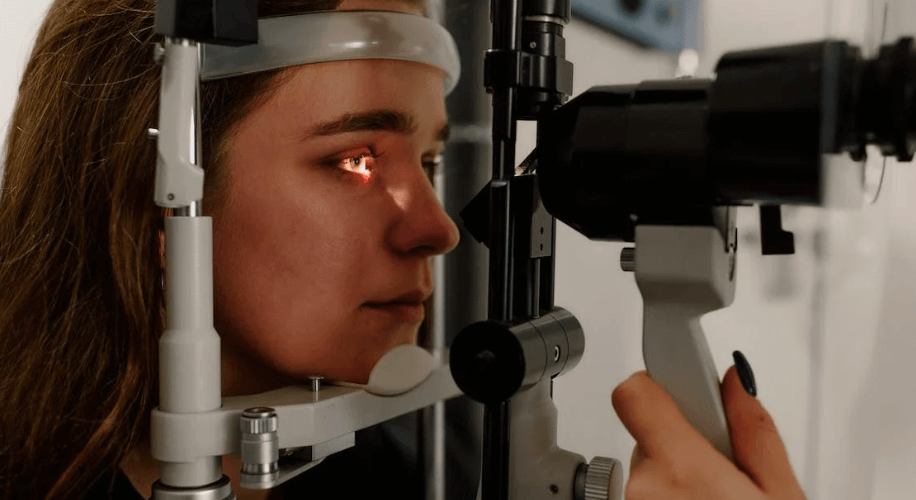Best Foods for Healthy Eyes: Improve Your Vision

You’ve probably heard the advice, “Eat more carrots to protect your eyesight.” But have you ever wondered why that is? And are there other foods that can do wonders for your vision?
Medical and nutrition experts, after extensive research, have uncovered a wealth of foods loaded with essential vitamins and nutrients that can boost eye health. By incorporating these into your diet, you can potentially enhance your vision and overall eye well-being. Let’s delve into these eye-friendly nutrients and discover how they can help keep your eyes in top shape!
Protein: The Vision-Boosting Element
Proteins are the building blocks for producing visual pigments. When your diet lacks sufficient protein, it can lead to a shortage of these pigments, resulting in issues like night blindness. To support your eyes, make sure to include protein-rich foods like lean meat, fish, dairy products, eggs, and soy-based items in your meals.

Vitamin A: Key to Crystal-Clear Corneas
Adequate vitamin A levels contribute to the transparency of your corneas, ensuring bright and vivid eyesight. Conversely, a deficiency in vitamin A can affect corneal health, causing blurriness and potentially leading to night blindness and cataracts. Foods rich in vitamin A include animal liver, fruits, vegetables, and, of course, carrots. Make them a regular part of your diet to maintain optimal eye health.

Vitamin B1 and B2: Guardians of Your Optic Nerve Cells
Vitamins B1 and B2 play a vital role in protecting your eye’s conjunctiva and maintaining corneal health. A deficiency in these vitamins can lead to symptoms like dry eyes, light sensitivity, blurry vision, fatigue, and even optic neuritis. You can find vitamin B1 in foods like rice bran, whole grains, legumes, and peanuts. As for vitamin B2, it’s abundant in liver, eggs, milk, and various vegetables. Ensure you include these foods in your diet to shield your eyes.
Vitamin C: An Eye Health Essential
Vitamin C is a potent antioxidant that helps combat free radicals and may slow down the development of cataracts. It has also been shown to decelerate the progression of age-related macular degeneration, a condition that can cause severe vision loss. Foods rich in vitamin C include grapefruits, tomatoes, dates, kiwis, and green leafy vegetables. These foods are also rich in lutein and beta-carotene, which help combat eye aging.

The Power of Omega-3 Fatty Acids
Your retinas need two omega-3 fatty acids, DHA and EPA, to function correctly. These fatty acids promote retinal health, prevent age-related macular degeneration, glaucoma, and dry eye syndrome. Look to various marine fish such as salmon, mackerel, tuna, and trout to get your dose of these essential fatty acids.
Micronutrients for Eye Health
Though micronutrients make up a minuscule fraction of your body weight, they play a significant role in overall metabolism, especially in maintaining healthy eyes.

Zinc: Zinc enhances the sensitivity of visual nerves and takes part in visual signal transmission. A shortage can affect the color discrimination ability of cone cells. Oysters top the list for zinc content, with other good sources including eggs, cheese, and peanuts.
Selenium: Selenium acts as an antioxidant and anti-aging element, protecting retinal health by neutralizing free radicals. Foods rich in selenium include fish, poultry, nuts, radishes, chives, and garlic sprouts.
Molybdenum: Molybdenum is a crucial component of the iris, which regulates pupil size to ensure clear vision. Foods like soybeans, lentils, and radish sprouts are good sources of molybdenum.
Calcium and Phosphorus: Calcium and phosphorus strengthen the sclera and participate in the physiological activities of the optic nerve. A deficiency can lead to optic nerve fatigue, decreased attention span, and nearsightedness. To keep your eyes healthy, include calcium and phosphorus-rich foods like ribs, milk, legumes, fish, and shrimp in your diet.

In addition to dietary choices, protecting your eye health involves taking breaks during prolonged screen time, using appropriate eyewear, like blue light glasses, and ensuring regular eye check-ups. If you experience any eye-related issues, it’s best to consult a professional eye doctor for guidance.

Remember, your diet can significantly impact your eye health. By incorporating these eye-friendly foods, you’re taking proactive steps to maintain clear and vibrant vision for years to come.
And when it comes to eyewear, from classic to trendy, you can always trust Zenni Optical. We’re here to help you find the perfect pair that suits your style and vision requirements.
About the Author: Dr. Steven Lee
Dr. Steven Lee is a visionary leader in the eye care and telemedicine sectors and has built a remarkable career by combining his formal training in eye care, engineering expertise, and a passion for innovation. Dr. Lee serves as Zenni’s the Head of Optical Product.



 Canada
Canada